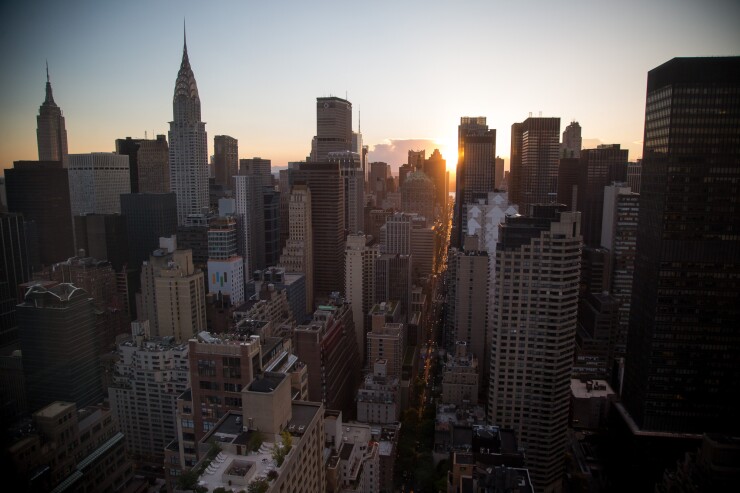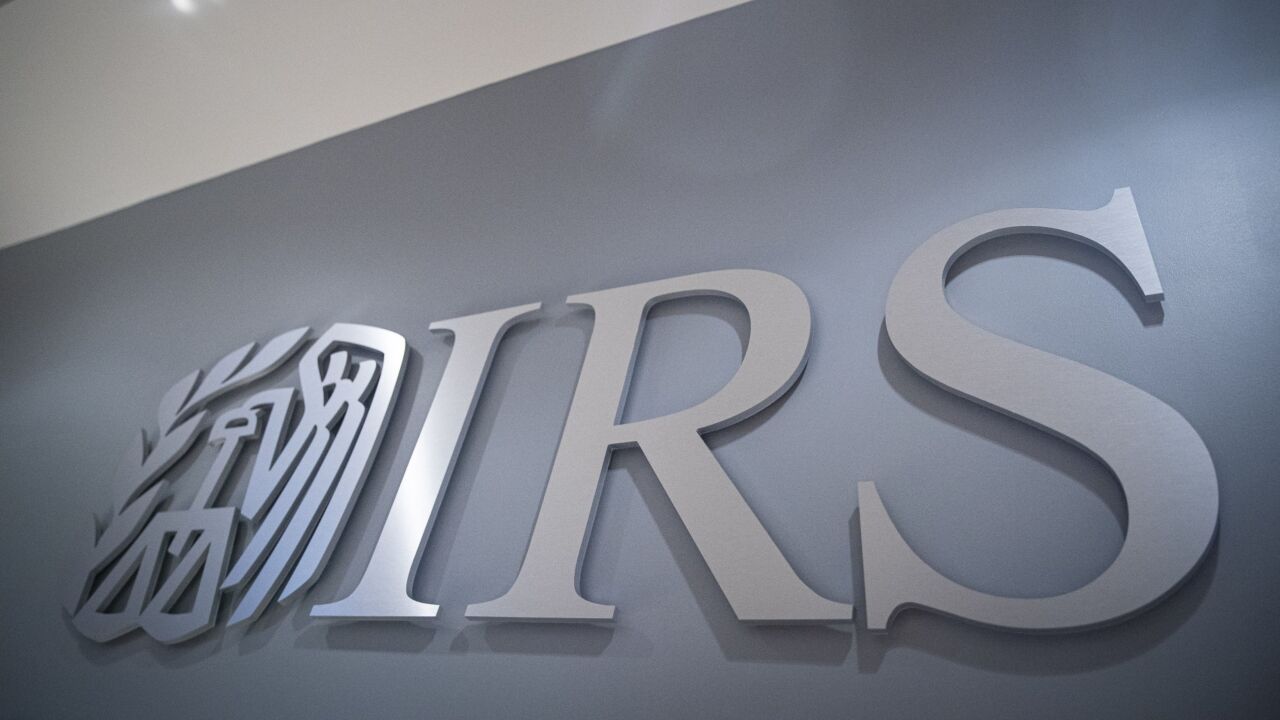High-end real estate brokers in New York worry that foreign second-home buyers are feeling under assault from all sides and may end up going elsewhere. Already wary of President Donald Trump’s anti-immigrant rhetoric, they now see a planned tax on absentee owners as a swipe from the political left.
“The international buyer has basically gone away over the past two years,” said real estate broker Martin Eiden at Compass, who sells about $50 million of residential property a year. “There’s only so much that people will take — they’ll either go somewhere else or they’ll just get a hotel room.”
The proposed tax would apply to properties above $5 million owned by non-residents. Governor Andrew Cuomo says the state needs it to pay for transit fixes. Mayor Bill de Blasio says the rich should pay more, especially those who pay no income taxes while full-time residents bear the costs of services that make New York City so attractive to foreigners and out-of-staters.

The tax may slow sales at the upper end of New York’s housing market, but it could also bring benefits that go beyond fixing the subway, including encouraging developers to focus on units that are more affordable to permanent residents, said Moses Gates, a vice president at the Regional Plan Association. In the long run, everyone’s property values benefit from safety, security and cultural amenities funded by full-time residents.
“You’re talking about a very small, specific market of $5 million second homes that is not relevant to the vast majority of New Yorkers,” Gates said. “We have a housing emergency. Every unit of housing taken away for part-time use is not available for people living here full time.”
Pushing Back
New York’s real estate industry is pushing back against the tax, saying it will hurt a market segment that’s already struggling. Buyers this year signed 20 percent fewer contracts for condos, co-ops and townhomes above $4 million compared with the same time last year and they’re only making offers after the original list price drops by 9 percent on average, according to Donna Olshan, president of brokerage Olshan Realty Inc.
“The very rich really hate taxes,” said Barry Hersh, a New York University real estate professor and former property developer. "It will have a psychological effect and will be a lower number of sales. But is it 1 percent less, or 2 percent? I don’t know.”
The proposed tax will be included as part of the state’s budget due April 1. Its prospects for passage improved this month when Cuomo, de Blasio, Senate Majority Leader Andrea Stewart-Cousins and New York Assembly Speaker Carl Heastie backed it. Advocates say it would raise about $665 million annually, money that could be leveraged into billions of dollars more to pay off bonds for making transit-related capital improvements. Absentee owners, at least those from outside New York state, pay no city or state income taxes.
The proposed tax on so-called pieds-a-terre has gained traction after the purchase by Citadel founder Ken Griffin of a 24,000-square-foot penthouse on Central Park South for a record $238 million, making it America’s most-expensive home. Griffin, who lives in Chicago, will use the apartment when he visits Citadel’s New York offices, the company said.
‘Contribute More’
“You have people coming in, buying $200 million apartments, and there’s no mortgage-recording tax because they’re pretty much paying cash, and we still have to provide services,” Heastie said at a breakfast sponsored by Crain’s New York magazine on March 8. “So we’re asking people to contribute a little more.”
It’s a relatively easy political lift for lawmakers because the pied-a-terre buyers don’t vote in New York. That doesn’t mean it won’t cost New Yorkers because if sales and prices on high-priced properties drop, that will mean less tax revenue, opponents say. The bill, sponsored by Democratic state Senator Brad Hoylman who represents many of New York’s high-end neighborhoods, calls for a sliding scale of taxes and fees based on the value of the unit.
Properties over $5 million would be subject to the tax surcharge, starting at 0.5 percent of the home value to a maximum rate of 4 percent on homes above $25 million. A part-time owner of a $10 million unit, for example, would have to shell out an extra $45,000 a year.
Infrastructure Crisis
“We have a mass transit system that is in crisis, public housing that is falling down around its residents and a yawning gap between the very wealthy and ordinary NYers that is driving this conversation,” Hoylman said in a March 11 tweet.
Hoylman says that there are only 5,400 units in New York above $5 million that are owned by non-residents. But it’s unclear how many absentee buyers and sellers are trading homes in that range, which represents the top 8 percent of sales, according to Jonathan Miller, president of appraiser Miller Samuel Inc.
If the bill passes, New York would be far from alone, following other international destinations that have already instituted similar measures, from Vancouver and Hong Kong to Paris and London.
“New York is one of the last major cities to start thinking about some sort of punishment for international investors, or investors in general,” said Miller. “If it passes, it will be the salad days for appraisal work, with people trying to figure out if they’re in the $5 million threshold.”
Opponents include the Real Estate Board of New York, whose president, John Banks, said the “legislature should conduct an analysis to clarify the harmful impact this tax would have on development, real estate sales and rentals as well as the loss of construction jobs and tax revenue that results from such employment."
‘Class Warfare’
They also include brokers like Olshan, who likens it to “class warfare,” casting some of her best clients as villains. Why punish them, she asks, for being rich and living more of the time somewhere else?
“This whole idea of get out the pitchfork and burn the palace down leads to bad decision-making,” Olshan said.
Rachel Ostow Lustbader, a broker with Warburg Realty, says pied-a-terre buyers may not pay income tax but they pay “plenty.”
All apartments selling for more than $1 million are already subject to a 1 percent “mansion tax,” and all apartment sellers incur a 2 percent transfer tax no matter the price. If the pied-a-terre tax were enacted, some apartments would sell for just below $5 million to avoid the tax altogether, resulting in less revenue for those sales, Lustbader said.
“It makes the city look very unfair,” Lustbader said. “These people don’t take the subway.”
But to James Parrott, the economist whose proposal is the basis for the legislation, the subway benefits those who ride it as well as those who deal with the above-ground traffic it alleviates. Plus, he said, it’s a matter of fairness, not just to everyday New Yorkers but to full-time residents of the most exclusive neighborhoods, from the Upper East Side to Central Park South. Besides, even if demand from non-residents stalls, something he thinks is unlikely, full-time residents will, literally, fill in the gaps. And they’ll pay income tax.
“Empty units mean less income tax coming in and fewer locals walking the streets and frequenting the stores that bring vitality to New York City," said Parrott, of the New School’s Center for New York City Affairs. “Pied-a-terre owners are not good for the city’s economy.”
— With assistance from Sydney Maki





